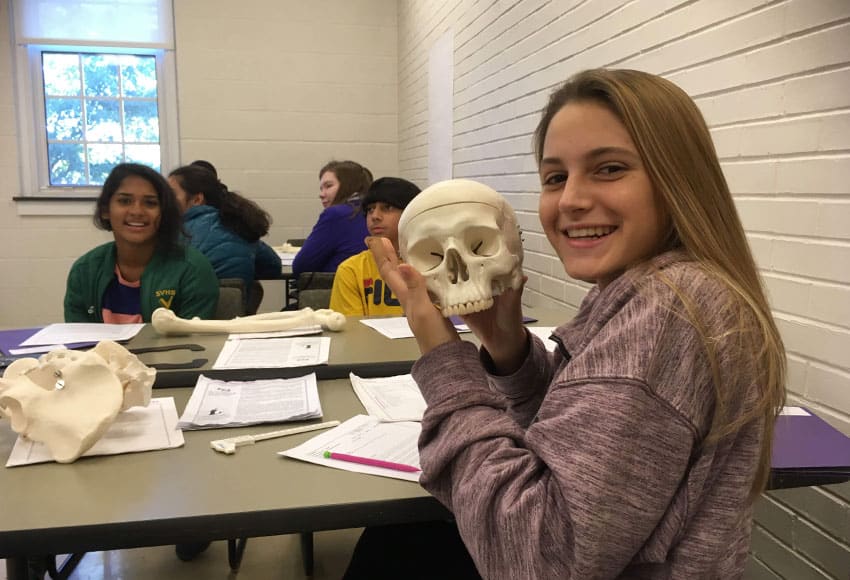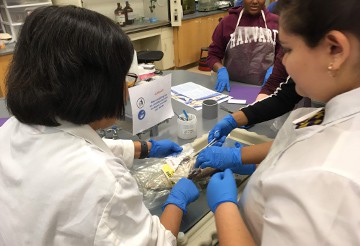Converse Hosts 2019 South Carolina Junior Academy of Science Workshop

On November 2, Converse hosted the South Carolina Junior Academy of Science’s (SCJAS) annual workshop, which enables high school teachers and students to participate in a full day of science-focused activities. The 2019 workshop included hands-on activities like shark dissection and virtual reality exploration, as well as research presentations and teacher professional development.
 Dr. Erin Templeton, Dean of the School of Humanities, Sciences, & Business, welcomed nearly 100 attendees comprised of high school students and teachers from Spartanburg, Greenville, Richland, York, Charleston, and Marion counties. Paul Wagenknecht, Professor of Chemistry at Furman University, delivered an enlightening Plenary talk about solar energy, nuclear energy, and fossil fuel. More than 15 hands-on sessions were offered throughout the day. Eight of the 11 workshop teachers were Converse faculty. According to Dr. John Kaup, SCJAS Executive Director, this year’s attendance was the highest they’ve had in five years. Dr. Kaup was impressed by the large turnout of faculty volunteers from Converse.
Dr. Erin Templeton, Dean of the School of Humanities, Sciences, & Business, welcomed nearly 100 attendees comprised of high school students and teachers from Spartanburg, Greenville, Richland, York, Charleston, and Marion counties. Paul Wagenknecht, Professor of Chemistry at Furman University, delivered an enlightening Plenary talk about solar energy, nuclear energy, and fossil fuel. More than 15 hands-on sessions were offered throughout the day. Eight of the 11 workshop teachers were Converse faculty. According to Dr. John Kaup, SCJAS Executive Director, this year’s attendance was the highest they’ve had in five years. Dr. Kaup was impressed by the large turnout of faculty volunteers from Converse.
Dr. Edna Steele, Professor of Biology said the event’s success was thanks to the support and assistance of colleagues in the Biology, Chemistry, Biochemistry and Physics Department, as well as colleagues from Departments of Psychology, Business and Economics, and the South Carolina Academy of Science (SCAS) who graciously gave up part of their Saturday to teach.
“A number of our science majors volunteered all day as early as 7 a.m. until the conclusion of the workshop at 4 p.m., Dr. Steele said. “Members of the Converse campus technology, admissions office, Sodexo campus services, campus safety, and communications office, all contributed to the success of this event from promoting the event to providing technical support.”
The South Carolina Junior Academy of Science is an organization aligned with the South Carolina Academy of Sciences. Its main focus is to organize opportunities, such as workshops and conferences, to enable South Carolina Middle and High School students to expand their STEM knowledge and share their scientific achievements. In addition, these same workshops and conferences should enable Middle School and High School teachers to likewise expand their STEM knowledge as well as support their pedagogical development as STEM teachers.